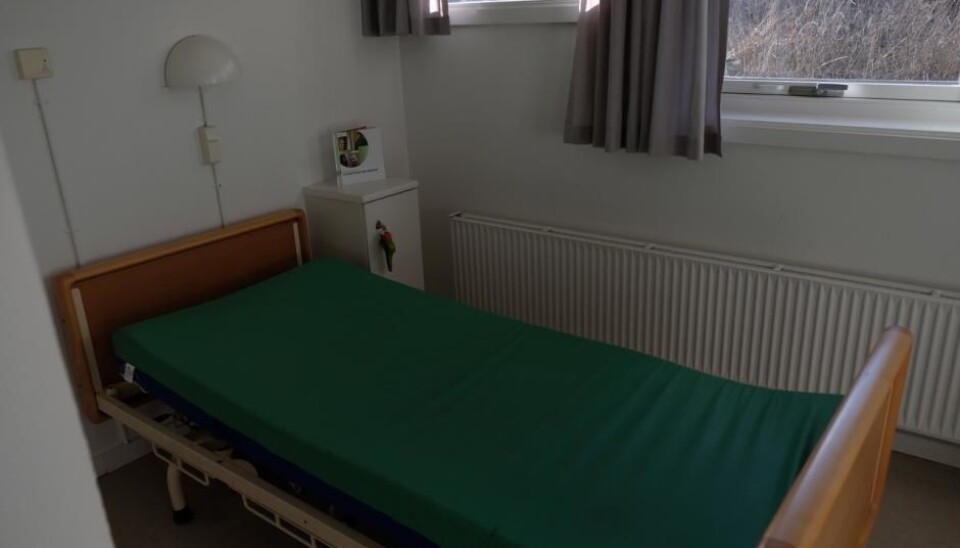
Voluntary admissions do not reduce coercion among psychiatric patients
Psychiatric patients in Denmark can decide when to admit themselves to hospital. The idea was to reduce coercion, but new evidence indicates it has little to no effect.
Since 2013, severely ill psychiatric patients in Denmark have been able to decide when to admit themselves to hospital without having to first go to the emergency department for evaluation.
Now, scientists in Denmark have assessed whether or not the scheme works.
Pervious pilot studies have suggested that patient-controlled admissions, as they are called, reduced coercion—whereby patients are forcibly treated or committed.
But this does not seem to be the case, according to lead author Dr. Christoffer Torgaard Thomsen, consultant at the Psychiatric Center Glostrup, Denmark.
“Nothing suggests that it successfully reduces coercion,” says Thomsen, who has conducted the largest study on patient-controlled admissions to date, together with Professor Merete Nordentoft and Michael Eriksen Benros, two of Denmark’s leading experts in treating psychiatric diseases.
“If the goal of introducing patient-controlled admissions is to reduce coercion in psychiatry, then you probably need to do something else,” says Thomsen.
The results are published in the scientific journal, Acta Psychiatry.
Longer admissions than the control group
The study examined the use of coercion, medicine, incidences of suicide and self-harm, and the number of days spent in hospital, among two groups of patients.
One group of 422 had a contract where they could decide when to admit themselves to hospital. The control group of 2,110 patients were of a similar age, sex, diagnosis, and disease history.
They found that patient-controlled admissions did not decrease the incidences of coercion or the risk of suicide and self-harm. Patients responsible for admitting themselves to hospital took, on average, more medicine than the control group, and were admitted more often and for longer – almost one month more.
“The concept is sympathetic and recovery-orientated, but we don’t have any evidence-based reason to recommend introducing the scheme,” says Nordentoft, professor at the University of Copenhagen and head of the research group at Psychiatric Center Copenhagen.
A small Norwegian study from 2017 reached similar conclusions.
Professor Torleif Ruud from the department of Clinical Medicine at the University of Oslo calls the new study “the best study” on this topic, methodologically speaking.
“Previous studies were small and did not compare with a control group. It’s an important study because it questions what we thought,” says Ruud.
He studies patient-controlled hospital admissions and is familiar with the new study. Though he points out that this is a new field of research and further research is needed.
Read More: How psychiatry was revolutionised by a treatment discovered in a shed
The scheme is already implemented in Denmark
Patient-controlled admissions were found to be no more effective than normal treatment in terms of reducing coercion. So has the scheme been scrapped?
No. The capital region authorities decided to make the program permanent in 2016, after the trial period had ended. This was before they knew whether or not it had the desired effect.
Since then, the scheme has been expanded and all psychiatric centres in Denmark are now able to offer patient-controlled admissions.
And while patients are as likely to experience coercion during patient-controlled admission, there might still be some other positive effects that help their recovery, says Anne Lindhardt, chair of The Mental Health Foundation, Denmark.
“It’s about much more than coercion and medicine – it’s about empowerment, better ethics, and better collaboration with patients,” says Lindhardt.
Read More: Scientists rebut claim that antidepressants don't work
A culture change in psychiatry
Both the Danish Psychiatric Association and the Better Psychiatry support group for relatives think that the patient controlled admission program has value.
“It’s about creating a culture change in psychiatry, so we give more power to the users and focus on recovery,” says Thorstein Theilgaard, general secretary at the Better Psychiatry support group for relatives.
According to Professor Ruud, a good next step would be to assess whether some groups in particular benefit from the scheme.
“For example, it could be interesting to look at the diagnosis groups. Are there groups of patients for whom it makes more sense to offer [the scheme] than others?” he says.
---------------
Read more in the Danish version of this article at Videnskab.dk
Translated by: Catherine Jex





